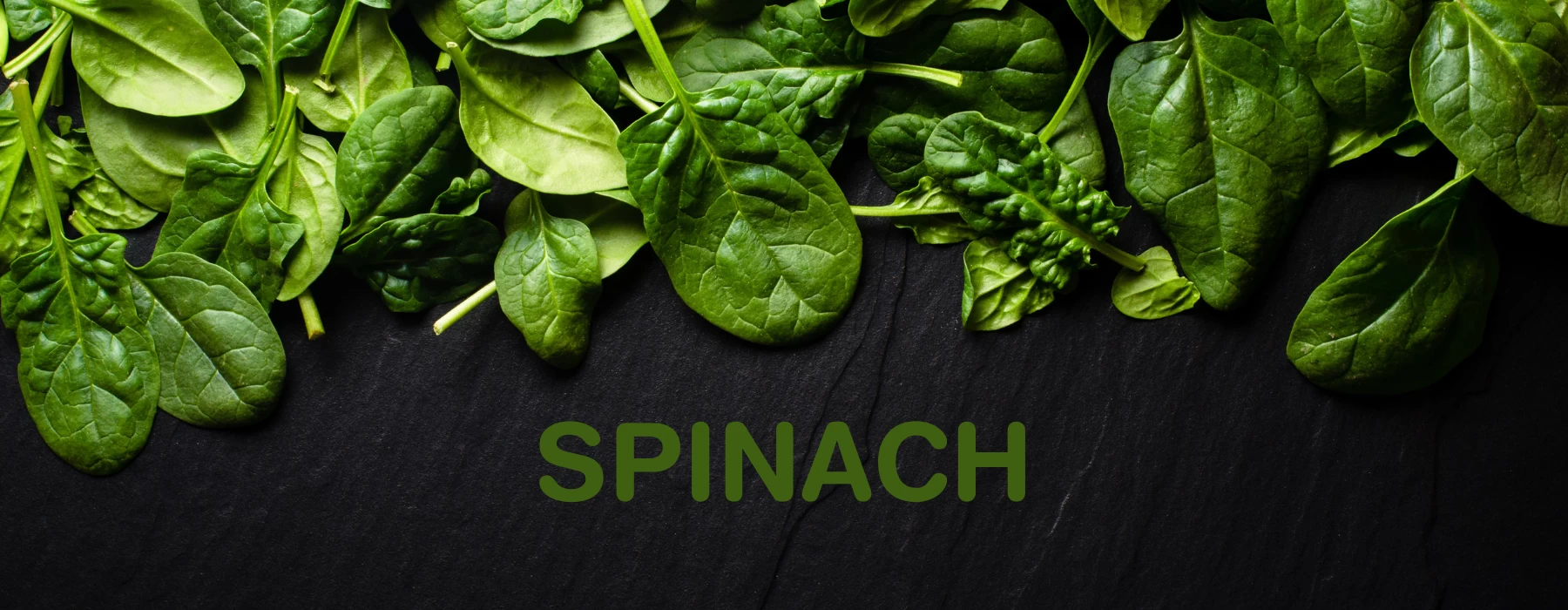
Spinach belongs to the amaranth family and is related to beets and quinoa. It is an excellent source of nutrients and antioxidants. Spinach is good for eyes, for reducing the risk of oxidative stress, helps prevent cancer, and maintain proper blood pressure levels. Nutritional facts of raw spinach per 100 grams:
|
Calories |
23 |
|
Water |
91% |
|
Protein |
2.9 grams |
|
Carbs |
3.6 grams |
|
Sugar |
0.4 grams |
|
Fiber |
2.2 grams |
|
Fat |
0.4 grams |
Carbs present in spinach are mainly fiber along with small amounts of sugars. Spinach contains insoluble fiber which helps prevent constipation by adding bulk to the stool. Spinach is a rich source of a variety of minerals and vitamins including, carotenoids, vitamin C, vitamin K1, folic acid, iron, and calcium. Carotenoids are turned into vitamin A by our body. Vitamin C is a powerful antioxidant, which is essential for a healthy immune system. Spinach is an extremely rich source of vitamin K1, needed for clotting of blood. Even one spinach leaf can provide 50% of RDI for vitamin K1. Folic acid is vital for pregnant women and essential for normal cellular function and tissue growth. Iron helps create haemoglobin and calcium is essential for bone health and a crucial signaling molecule for your nervous system, heart, and muscles. Spinach contains various plant compounds which may be beneficial for improving health including, lutein, kaempferol, nitrates, quercetin, and zeaxanthin.
Spinach is very nutritious and provides numerous health benefits. Free radicals formed as a result of metabolism causes oxidative stress which accelerates aging and can cause cancer and diabetes type 2. The antioxidants present in the spinach reduces oxidative stress which in turn reduces the chances of the damages caused by it.
Spinach is excellent in zeaxanthin and lutein. According to reports of several it was indicated that zeaxanthin and lutein work to prevent macular degeneration and cataracts, which are major causes of blindness.
Apart from containing antioxidants, which help lowering the risk of cancer, spinach also contains two components, MGDG and SQDG which may slow down cancer growth. It was also reported in studies that these pigments may reduce the chances of prostate cancer and also reduce the risk of breast cancer.
Spinach is zipped with high amounts of nitrates which has been shown to help in moderating the blood pressure levels, hence reducing the chances of heart diseases.
Although spinach is considered very healthy, it has some potential downsides also. Kidney stones are mainly calcium oxalates and spinach is high in both calcium and oxalates. So, people at a high risk of developing kidney stones should avoid eating spinach. Spinach is high in vitamin K1, which is best known for its blood clotting function. People who are taking blood thinning medicines should avoid spinach consumption.